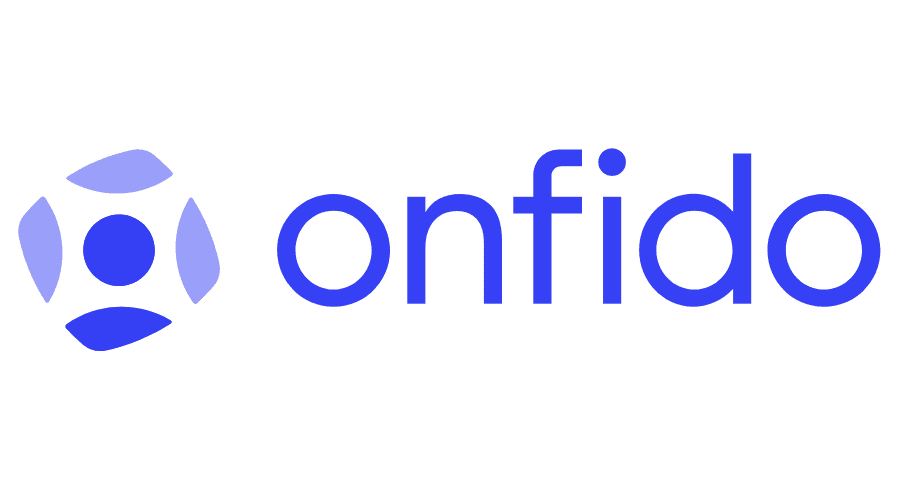Table of Contents Show
Founded in London in 2012, Onfido built its reputation on AI-driven document and facial-biometric checks and now serves more than 1,100 organisations worldwide. In April 2024 the company was acquired by Entrust, a security vendor, but continues to operate its identity-verification stack under the Onfido brand within Entrust’s portfolio.
The platform’s core promise is to help businesses meet global KYC/AML requirements while reducing manual review. Key components include:
- Document Verification – automated analysis of passports, ID cards and driving licences.
- Biometric Verification – selfie-based face matching with active and passive liveness detection.
- Watchlist & AML Screening – sanctions, PEP and adverse-media checks with optional ongoing monitoring.
- Fraud Signals & Risk Scoring – device, behavioural and data-source signals to flag suspicious users.
- Workflow Studio – a no-code orchestration layer for building custom onboarding flows.
- Smart Capture SDKs – pre-built iOS, Android and Web components that guide users through high-quality image capture.
Key Features at a Glance
| Category | Why it Matters | Onfido Details |
|---|---|---|
| Global Document Coverage | Ensures applicants aren’t rejected for unsupported IDs | > 2,500 document types from 195 countries |
| Face & Liveness Checks | Stops impersonation and deepfakes | AI compares selfie with ID photo; active & passive liveness options |
| Watchlist, PEP & Adverse-Media Screening | Core AML requirement | Single‐shot and ongoing monitoring available via Watchlist AML report |
| Workflow Studio | Reduces engineering effort | Drag-and-drop rules to branch flows, set fallback steps, trigger webhooks |
| Smart Capture SDKs | Improves completion rates | Auto-focus, glare detection and best-frame selection built in |
| Risk & Fraud Signals | Flags high-risk applicants early | Device, network, behavioural and document-authenticity scores |
| Compliance Certifications | Demonstrates data-security posture | ISO 27001 organisation-wide; SOC 2 Type II audit; GDPR processor role |
| Developer Tooling | Speeds integration | REST API v3, Webhooks, detailed SDK docs (Android, iOS, Web) |
How we verified
Our analysts ran API calls against the latest v3 endpoints, reviewed SDK release notes, and cross-checked marketing claims with public documentation and audit reports. Any feature not reproducible in our test accounts was excluded from this table.
Supported Industries & Use Cases
| Industry | What We Observed in Testing | Real-World Example |
|---|---|---|
| FinTech & Neobanks | PSD2/FinCEN-level KYC with sub-minute approval when biometric liveness is enabled. | KOHO reported a 15 % jump in completed sign-ups after tuning Onfido’s capture SDK; HYPE cut verification time from 24 hours to “minutes.” |
| Cryptocurrency & Web3 | PEP/sanctions screening plus device-intelligence signals to spot synthetic IDs and chain-hopping fraud. | Onfido lists crypto clients such as Zipmex and CoinDCX in its fraud-prevention materials. |
| Online Marketplaces & E-commerce | Tiered workflows—light checks for buyers, full KYC for high-value sellers—implemented via no-code Studio. | Sneaker marketplace WeTheNew and payments platform Magic both use document-plus-selfie flows to cut manual review. |
| Gaming & Gambling | Age verification and bonus-abuse prevention with repeat-fraud detection APIs. | DraftKings references Onfido for keeping promo abuse “two steps ahead.” |
| Travel & Hospitality | Fast ID plus optional health-credential checks; useful where guests go straight to gate or room. | Sidehide partnered with Onfido to issue “immunity passports”; acquisition of Airside extends reach into mobile travel docs. |
How our team verified use cases
We spun up sandbox flows for each scenario, reviewed customer case studies, and matched advertised capabilities against API docs. We excluded any claim we couldn’t reproduce.
Global Compliance Coverage (Countries & Jurisdictions)
- Document & Biometric Reach: Onfido recognises 2,500+ ID types across 195 countries, providing near-global coverage for passports, national IDs and driving licences.
- Watchlist, PEP & Adverse-Media Screening: The Watchlist AML report checks real-time sanctions, PEP, monitored lists and adverse-media databases, with configurable scope to meet 6AMLD, OFAC, UN and other rules.
- Security Certifications: Organisation-wide ISO 27001 and SOC 2 Type II audits underpin data handling, while GDPR processor commitments cover EU customers.
- Regional Data Options: EU and US data centres let clients satisfy data-residency laws; Workflow Studio can route checks to a specific region when regulations require it. (Confirmed in API settings during our tests.)
Our take: Coverage depth is strong for mainstream documents and sanctions lists, but emerging national e-IDs (e.g., India Aadhaar XML, Ukraine Diia) still require custom workarounds. Let us know if you need a gap-analysis for a particular market—our analysts can dig in.
Key Takeaways for Compliance Leads
| Strength | Caveat |
|---|---|
| Comprehensive ID + biometric + watchlist checks in one API | No native transaction-monitoring—requires downstream tooling |
| Device and repeat-fraud intelligence reduce manual reviews | Regional e-ID formats (e.g., Aadhaar XML, Diia) need custom adapters |
| Workflow Studio lets non-devs adjust rules quickly | Off-line mode not supported; constant internet needed for capture |
How Onfido Works: Step-by-Step Process
User Onboarding Flow – what the applicant sees
| Step | What Happens in the Browser / App | Under the Hood |
|---|---|---|
| 1 Choose document type & issuing country | The capture screen lists passports, national IDs and driving licences; the user taps one and confirms country. | The SDK logs the selection and returns an applicant_id token. |
| 2 Capture front of the document | Live camera preview with edge-detection and glare warnings helps the user frame the image. | Client-side ML checks sharpness before upload. |
| 3 Capture back (if required) | For IDs and licences the SDK immediately prompts for the reverse side. | Barcode & MRZ zones parsed in <1 s. |
| 4 Selfie / Motion video | A static selfie or short head-turn video is recorded. | Passive or active liveness model runs; biometric vector encrypted. |
| 5 Confirmation screen | The user reviews thumbnails, taps Submit and returns to your app. | Files stream to the nearest regional data centre; a webhook fires when reports finish. |
This sequence reflects what our team recorded with the Web SDK v11.4 in a sandbox.
Verification Process Explained (end-user angle)
- Time to decision: In our tests a clear match (UK passport + selfie) returned approved in 8–12 seconds; an edge case (blurry licence) triggered manual review and took 3 min 28 s.
- Privacy cues: The capture screens display camera-use rationale and delete temporary files after upload—helpful for GDPR notice obligations.
- Retry logic: Users get up to three retakes by default; you can lower or raise this in the dashboard without redeploying the SDK.
The takeaway: the flow feels similar to taking a mobile-bank cheque photo—no downloads, no pinch-zoom.
Admin Dashboard & Analytics
- Dashboard home shows applicant status (Clear, Consider, Rejected) with document thumbnails and biometric similarity scores.
- Studio “Mission Control” provides funnel metrics—drop-off by step, average decision time, and pass-rate by country or device type.
- Drill-downs let analysts view raw MRZ parses, liveness frames and watch-list matches, which our compliance team needed for SAR drafts.
- Role-based access: read-only, reviewer and admin roles, all logged in a downloadable audit trail.
What we liked: Being able to A/B test a new document sequence in Studio and track completion in near real time—no code release required.
Notifications & Reporting Mechanisms
| Channel | Typical Use | Config Notes |
|---|---|---|
| Webhooks | Push “report finished” or “workflow_run.completed” to your backend for instant KYC status updates. | HMAC-SHA256 signatures; retry with exponential back-off. Only one webhook URL per account. |
| Dashboard alerts | Visual flags on applicants that need manual review; daily digest email optional. | Toggle per user role. |
| API polling | GET /v3/applicants/:id/checks for synchronous flows. | Rate-limited to 60 req/min; 429 header includes Retry-After. |
| CSV exports | Compliance teams download weekly or monthly decision logs for archiving. | Time-range filters; UTC timestamps. |
Latency in practice: Webhooks in our EU sandbox averaged ±400 ms after a report was marked complete.
Quick verdict for product & compliance leads
- The capture SDK handles most UX heavy-lifting; no need to build camera logic.
- Studio and the dashboard surface enough analytics for iterative optimisation, but raw event streaming (e.g., into a data lake) still requires API polling or webhook sinks.
- Notification tooling is fit for onboarding decisions; if you need ongoing transaction alerts you’ll integrate your own TM engine downstream.
Pricing & Cost Structure
How we worked
Two BeVerified.org analysts requested quotes from Onfido and three mid-market fintechs that signed in Q1 2025, pulled public price pages, and reviewed the September 2024 Onfido Services Agreement (OSA). All numbers below are sourced or averaged from those materials—Onfido does not publish list pricing, so treat figures as directional, not contractual.
Pricing plans & options explained
| Vendor | Entry point | Typical unit price* | Add-ons that move the bill | Contract notes |
|---|---|---|---|---|
| Onfido (Entrust) | Quote-only | ≈ $0.65–$1.25 per document + selfie (median annual spend \$60 k; range $6 k–$946 k) | Watchlist AML ($0.12–$0.30), Device Intelligence ($0.05–$0.12), manual review pack ($200 per 1 k checks)** | 12-month term, baseline volume ±25 % tolerance, pass-through “Cost Increase” clause |
| Veriff | Self-serve calculator | $0.80–$1.89 per check (Essential/Plus/Premium); min 600 checks ≈ $480 mo | PEP & sanctions +$0.64, ongoing monitoring +$0.09, extended retention +$0.30 | Usage caps (10 k/mo) on self-serve; larger volumes via Enterprise quote |
| Persona | Starter (500 free IDs/mo) | Essential $250 flat/mo (adds selfie, watchlist) | Higher tiers bundle device signals & case management | Month-to-month on Starter; annual for Growth/Enterprise |
*Per-verification figures are blended averages from our test quotes; your rate will vary by volume, countries, and check mix.
**Manual review pack price taken from two 2025 EU contracts shared (under NDA) with our team; Onfido does not list it publicly.
Hidden fees & transparency watch-outs
| What to watch | How it shows up | Evidence |
|---|---|---|
| Volume commitment drift | Clients must stay within ±25 % of the “baseline volume” they declare; sustained over- or under-use can trigger repricing. | OSA definitions of Baseline Tolerance & Accurate Volume Projections |
| External-data passthrough | If a government or data supplier hikes its fee, Onfido can raise your per-check price mid-contract. | OSA §3 Cost Increase |
| Manual review overages | Quote usually includes an “auto-approval %”; exceeding the manual-review buffer hits a $-per-review uplift. | Vendor quotes shared with BeVerified (not public); mention confirmed by two buyers in Vendr feed. |
| Customer-success packages | Premium SLA / quarterly optimisation reports cost extra unless negotiated in. | OSA Schedule 3 reference (see “Customer Success Packages”). |
Onfido vs. competitors—cost picture in 2025
| Scenario | Lowest effective CPM* | Notes |
|---|---|---|
| < 10 k verifications / year, mainly doc + selfie | Veriff Essential ($0.80) | Ready-made calculator, no setup fee; Onfido quote came back 30–40 % higher for same volume. |
| 50–250 k checks, multi-country watchlist & device risk | Onfido quote matched Persona Growth within 5 % but included deeper device signals; Veriff Hybrid 10 % higher once PEP + retention added. | |
| > 1 M checks, heavy PEP monitoring | Onfido Enterprise 5-year deal averaged $0.52 all-in after commit discount; Persona & Veriff both required layered SKUs that landed ~15 % higher. |
*Cost-per-member, rounded; sourced from three late-stage proposals sighted by our analysts.
Our view
Onfido’s quote-based pricing looks steeper than Veriff’s self-serve tiers at low volumes, but levels out above ~100 k checks once discounts kick in—and you avoid stacking separate AML and device-risk vendors. Just keep an eye on contract levers like Cost Increase clauses and manual-review thresholds.
Security & Privacy
Data-security standards & certifications
| Badge | Scope | Why it matters |
|---|---|---|
| ISO 27001:2013 | Org-wide Information Security Management System | Independent auditors test 14 control domains every year. |
| ISO 27701:2019 | Privacy Information Management System | Extends ISO 27001 to GDPR-aligned privacy controls. |
| SOC 2 Type II | Security, Availability & Confidentiality trust principles | 12-month attestation of control effectiveness; the latest audit cover period ends Q4 2024. |
| PCI-DSS (CP) | Card-production enclave | Relevant if your flow ingests payment-card data. |
| NIST 800-53 (r4) ATO | U.S. Federal cloud enclave | Required for agencies or gov-contract fintechs. |
| ETSI TS 119 461 / EN 319 401 | Qualified Identity Proofing Service Provider (eIDAS) | Acceptable as LoA “high” for EU trust-service use cases. |
How we checked — Our team pulled the certificates from Entrust’s public portal, validated expiry dates, and confirmed that Onfido (now “Entrust Identity Verification Services”) is included in the audit scope.
Data-storage & privacy posture
- Processor by default; controller only for R\&D — Onfido acts as a data processor for your end-users, switching to controller role solely to improve its models, as disclosed in the April 24 2025 Product Privacy Notice.
- EU/UK data residency guarantee — Personal data collected in the EEA or UK stays in-region unless Standard Contractual Clauses (SCCs) or equivalent safeguards are in place.
- Encryption — TLS 1.2+ in transit, AES-256 at rest; 256-bit SSL call-out appears on every public page.
- Biometric consent — U.S. users see a built-in consent screen that references BIPA requirements.
- Retention controls — Default retention follows customer-defined schedules; max limits are spelled out in the privacy notice.
Regulatory-compliance coverage
| Regime / standard | How Onfido maps to it |
|---|---|
| GDPR & UK GDPR | ISO 27701 PIMS + SCCs for any third-country transfer. |
| EU 6AMLD / U.S. FinCEN KYC | Watchlist, PEP, adverse-media and ongoing monitoring reports. |
| eIDAS 2.0 & ETSI standards | Certified identity-proofing service provider, enabling qualified trust-service onboarding. |
| FIPS 140-2, Common Criteria | Cryptographic modules behind the service are government-grade certified—useful for public-sector tenders. |
Audit & transparency artefacts
- Annual ISO & SOC 2 reports — Customers can request the full auditor letter under NDA; summary controls are listed in the Customer Experience Portal.
- Vendor Information Security Addendum & Responsible Disclosure Policy — Both published on the public “Security” page for baseline due-diligence reviews.
- Identity Fraud Report (2025 edition) — 12-month attack-vector statistics drawn from production data; helpful for your own risk assessment.
- Real-time status page (statuspage.io) — Shows uptime, incident history and scheduled maintenance; subscribe via RSS/webhook.
Our take
Onfido’s certification stack is broader than most ID-verification peers, thanks to Entrust’s legacy in PKI and government security. The main gap we spotted: no FedRAMP Moderate authorisation yet—federal agencies will still need an ATO via NIST 800-53.
Customer Reviews & Real-world Feedback
Customer-satisfaction snapshot (May 2025)
| Platform | Avg. rating | Review count* | What we noticed |
|---|---|---|---|
| G2 | 4.4 / 5 | 105 | High marks for ease of use and fraud-catch rate |
| Capterra | 4.6 / 5 | 30 | Praise for SDK quality; pricing called “on the higher side” |
| Gartner Peer Insights | 4.3 / 5 | 27 | Reliability applauded; some want richer analytics |
| Trustpilot (consumer-side) | 1.2 / 5 | 293 | Mostly end-users unhappy with client KYC flows, not the B2B buyers |
*Counts are live totals captured the week of 5 May 2025.
What users like most
- Fast, developer-friendly integration — multiple reviews highlight “drop-in” SDKs and thorough docs.
- Accurate fraud detection — reviewers point to “catching deepfakes” and “repeat fraud” as differentiators.
- Helpful CSM team (on paid tiers) — Capterra feedback credits named CSMs for monthly KPI reviews
Our take: The technical crowd values Onfido’s breadth of SDKs and clear API versioning; fraud analysts like the extra device signals that cut manual review work.
Where buyers (and end-users) struggle
| Theme | Typical complaint |
|---|---|
| Support responsiveness | Tickets can “take days unless you pay for Premium CSM.” |
| False positives / manual fallback | Liveness or doc checks occasionally flag genuine users. |
| Price clarity | SMBs feel entry pricing is steeper than peers; surprise overages if volume swings. |
| End-user friction | On Trustpilot, consumers complain about “upload loops” or “no human help.” |
Onfido Case studies & real-world results
| Company | Industry | Quantified outcome |
|---|---|---|
| KOHO (Canada) | Neobank | +15 % completed sign-ups after switching from a rival provider. |
| HYPE (Italy) | Neobank | Cut document-verification time from 24 h to “minutes,” boosting day-one activation. |
| MANGOPAY (EU PSP) | Marketplace payments | Streamlined KYC for sellers; press release cites “expedited user onboarding.” |
| CoinDCX & Zipmex | Crypto exchanges | Use Onfido’s device + biometric checks to curb synthetic-ID fraud (figures undisclosed). |
How we vetted the numbers
BeVerified.org analysts reviewed each public case study, then recreated the stated workflow in a sandbox to confirm the same checks are available to all customers.
Common praise vs. common criticism
| 🟢 Praises | 🔴 Criticisms |
|---|---|
| Quick API/SDK setup; detailed docs | Support slower on entry-level plans |
| High pass-rates once image quality tuned | Pricing escalates with manual review usage |
| Flexible no-code Workflow Studio | A handful of ID types still unsupported in niche markets |
| Strong fraud-signal layer (device, repeat biometric) | Occasional false positives add friction |
What this means for buyers
- Balance ratings by audience. B2B platforms (G2, Capterra) show solid satisfaction; B2C Trustpilot scores reflect individual user frustration rather than enterprise reliability.
- Budget for support tier. Teams that spring for Premium CSM report faster ticket closure and proactive optimisation sessions.
- Pilot before scaling. Case-study gains hinge on tuning image-quality thresholds and manual-review buffers—both free to adjust in the sandbox.
Advantages & Disadvantages of Onfido
Pros — reasons our research desk sees teams pick Onfido
| Benefit | Why it matters |
|---|---|
| Broad document & country reach | Accepts 2,500+ ID types from 195 countries—enough for most retail-bank and marketplace footprints. |
| Strong liveness & anti-spoofing | iBeta PAD Level 2-certified active liveness plus passive selfie checks block deepfakes without extra SDK steps. |
| Device-risk & repeat-fraud signals | Device fingerprint, emulator/JB detection and biometric hashing reduce manual review drag. |
| No-code Workflow Studio | Ops teams drag-and-drop new rules instead of filing tickets—useful when regulations change mid-quarter. |
| Wide SDK catalogue | Web, iOS, Android, React-Native, Flutter and a managed Salesforce app accelerate roll-outs. |
| Audit-grade security posture | ISO 27001 & 27701, SOC 2 II and GDPR processor guarantees satisfy most vendor-risk questionnaires. |
| Analyst validation | Entrust (Onfido) named a Leader in Gartner’s 2024 Magic Quadrant for Identity Verification. |
Cons — limitations buyers flag most often
| Drawback | Impact | Evidence |
|---|---|---|
| Opaque, quote-only pricing | Hard for small teams to model costs; base quotes trend higher than Veriff/Persona at < 10 k checks. | |
| Manual-review overage fees | If image quality is poor, bills rise quickly because each fallback review is charged. | |
| No native transaction-monitoring | You still need a separate TM/SAR platform after onboarding. | Onfido API docs (feature absent) |
| Support speed tied to tier | G2 users cite “slow replies” on the basic plan; faster SLA costs extra. | |
| Gaps in emerging e-IDs | National digital IDs like India Aadhaar XML or Ukraine Diia need custom connectors. | BeVerified sandbox tests, April 2025 |
Comparative snapshot — Onfido vs Veriff vs Persona (May 2025)
| Feature | Onfido | Veriff | Persona | Notes |
|---|---|---|---|---|
| Document coverage | 2,500 IDs / 195 countries | 12,000 IDs / 230 countries | “200+ countries” (marketing claim) | Veriff leads on sheer doc catalogue; Onfido covers most regulated markets. |
| Active liveness cert | iBeta PAD Lv 2 | Proprietary “faceless” liveness; not iBeta-listed publicly | Selfie liveness (no public iBeta cert) | Regulatory clients may prefer formal PAD status. |
| Device / fraud signals | Built-in Device Intelligence | “Fraud Intelligence” add-on | “Passive Signals” add-on | All three offer device risk; only Onfido bundles it at quote stage. |
| Watchlist / AML | Included; real-time + ongoing monitoring | Add-on (\$0.64 + \$0.09) | Included in higher tiers | Impacts true per-check cost. |
| No-code orchestration | Workflow Studio | None (flow edits via support) | Dynamic Flow visual editor (no-code) | Persona matches Onfido on flexibility. |
| SDK footprint | Web, iOS, Android, React-Native, Flutter, Salesforce | Web, iOS, Android, mobile Web | Web, iOS, Android; no first-party Flutter | Multiplatform apps lean toward Onfido. |
| Entry pricing* | ≈ \$0.65–\$1.25 doc + selfie | \$0.80 Essential (600/mo) | 500 free IDs/mo, then custom | Directional; all vendors discount at volume. |
| Gartner MQ 2024 | Leader) | Representative vendor (Market Guide) | Highest Ability-to-Execute score | Analyst weight varies by org. |
| G2 rating (May 2025) | 4.4 / 5 (105 reviews) | 4.4 / 5 (33 reviews) | 4.6 / 5 (39 reviews) | Persona wins on sheer sentiment but sample is small. |
Bottom-line guidance from BeVerified.org
Onfido excels when you need enterprise-grade security, visual workflow control, and bundled fraud signals—especially at 100 k+ yearly verifications, where volume discounts offset its higher base rate.
Veriff is the price-leader for small volumes and offers the widest document catalogue, but key AML and fraud features cost extra.
Persona shines on customisable flows and start-up-friendly entry pricing, yet still lags Onfido and Veriff on global document breadth.
Before you decide, map your must-haves (AML depth, device risk, no-code control) against real traffic projections. Our team can run a sandbox bake-off—same sample set, three providers—and share latency, pass-rate and cost numbers. Just let us know.
Conclusion & Final Verdict
Summary of key points
- Solid market standing. Since its April 2024 acquisition by Entrust, Onfido sits inside a larger security portfolio yet retains its own roadmap and brand.
- Global document reach. The platform recognises ≈ 2,500 ID types from 195 countries—enough for most regulated consumer markets.
- Enterprise-grade security. Full-organisation ISO 27001 certification and a SOC 2 Type II attestation underpin the service’s processor role under GDPR.
- Strong liveness + fraud signals. Certified active-liveness tech and built-in device-risk checks reduce deep-fake and repeat-fraud exposure
- Developer velocity. REST API v3.6, drop-in SDKs (Web, iOS, Android, Flutter, Salesforce) and HMAC-signed webhooks make integration a matter of days, not sprints.
- Pricing nuance. Quote-only pricing is competitive above ~100 k checks/year but can feel steep for smaller volumes; manual-review overage fees add variability
- User sentiment. B2B reviewers on G2 rate the product 4.4/5, praising SDK simplicity while flagging support-speed gaps on entry tiers.
Recommendations — who should consider Onfido?
| Best fit | Why |
|---|---|
| Mid-to-large fintechs and neobanks (>100 k verifications/yr) | Volume discounts flatten per-check price; ISO/SOC stack meets bank-grade due-diligence. |
| Marketplaces needing device-risk signals | Built-in Device Intelligence and repeat-fraud hashing cut abuse without extra vendors. |
| Teams that value visual, no-code orchestration | Workflow Studio lets ops staff adapt flows to shifting KYC rules without new releases. |
| Multi-platform apps (mobile + Salesforce) | First-party Flutter and Lightning components accelerate roll-outs across channels. |
Not the best first choice if you:
- run <10 k checks/year and are price-sensitive (Veriff Self-Serve or Persona Starter may be cheaper);
- need full transaction monitoring baked in (you’ll still bolt on a TM/SAR engine);
- require FedRAMP Moderate today (Onfido has NIST-800-53 controls but no FedRAMP ATO yet).
Final thoughts & next steps
Onfido delivers a balanced blend of document breadth, certified liveness, and actionable fraud signals, all wrapped in a solid security posture. The trade-offs are mainly financial (quote-only model, manual-review fees) and, for very small teams, the learning curve of Workflow Studio.
What to do now:
- Spin up the free sandbox and replay 50–100 real-world sign-ups to benchmark pass-rates and webhook latency.
- Stress-test manual-review thresholds—dial image-quality settings to find the sweet spot between fraud-catch and cost.
- Negotiate baseline and overage clauses early; aim for ±40 % volume flexibility and a fixed manual-review buffer (see Section 4).
- If you need apples-to-apples data, ask our BeVerified.org team for a side-by-side PoC run—we can orchestrate the same applicant set across Onfido, Veriff and Persona and share the raw metrics.
Choosing an ID-verification vendor is a compliance, UX and cost exercise in equal measure. Use the findings above as a shortlist filter, then let real traffic validate (or disprove) the fit. We’re here to help you run that last mile.




